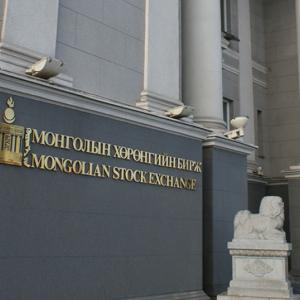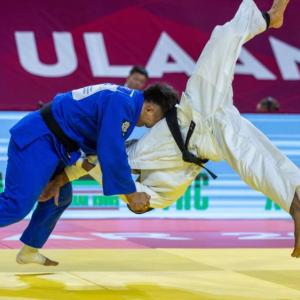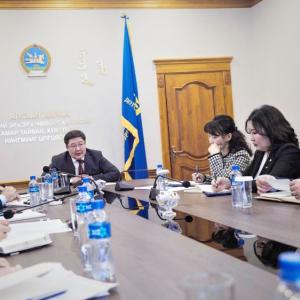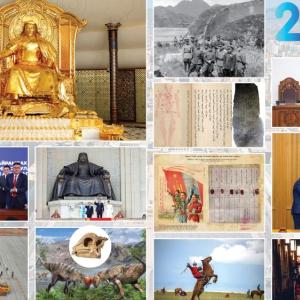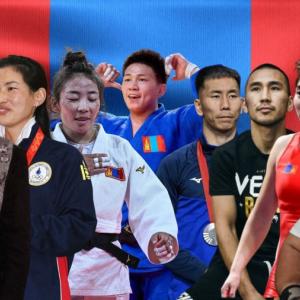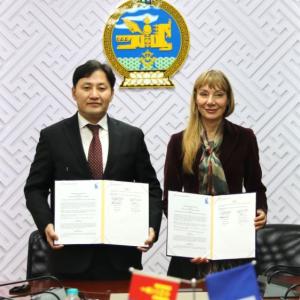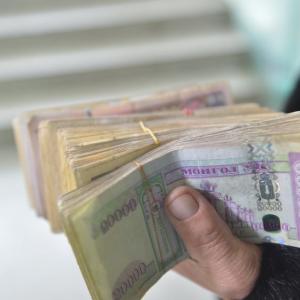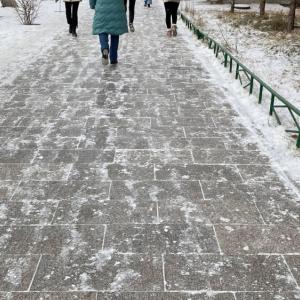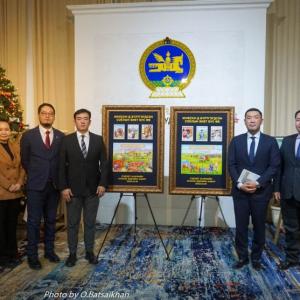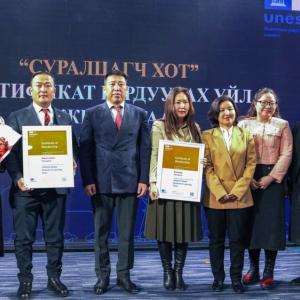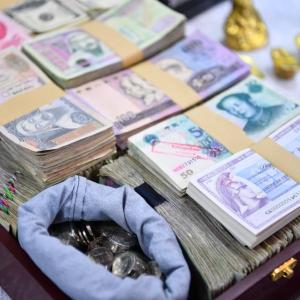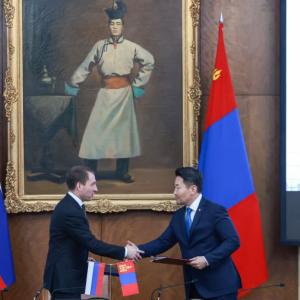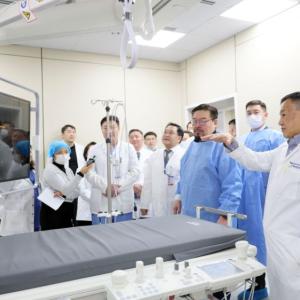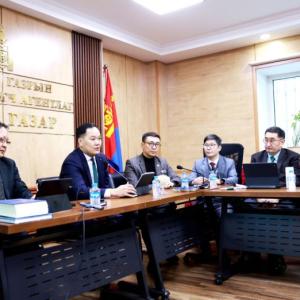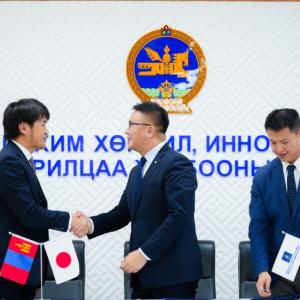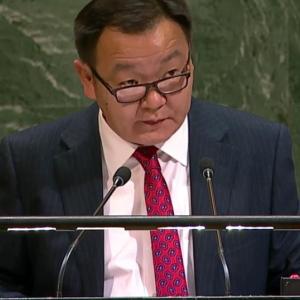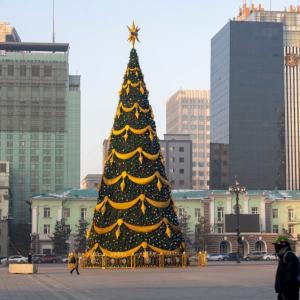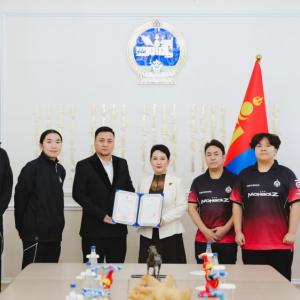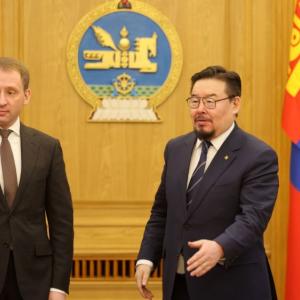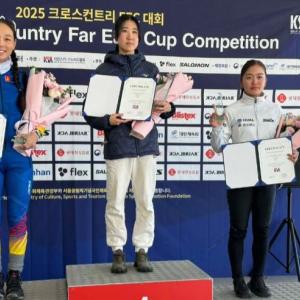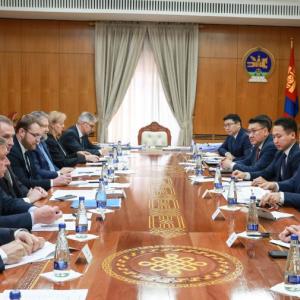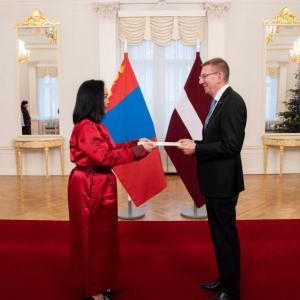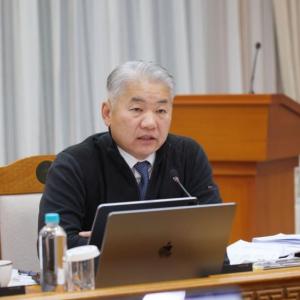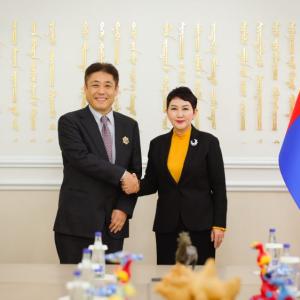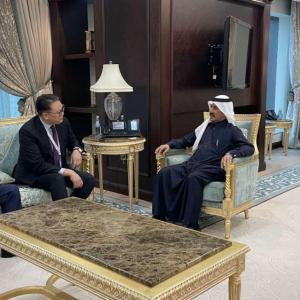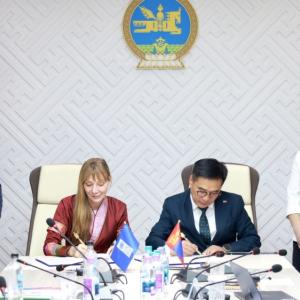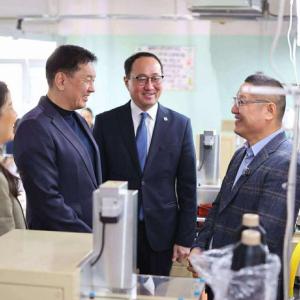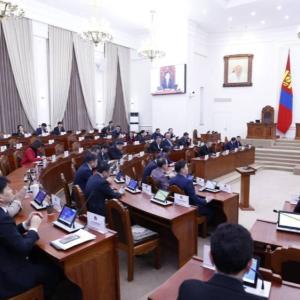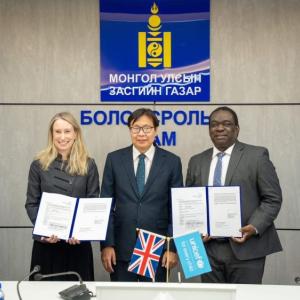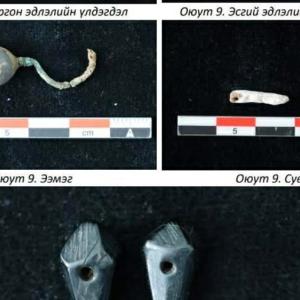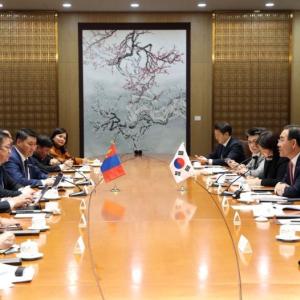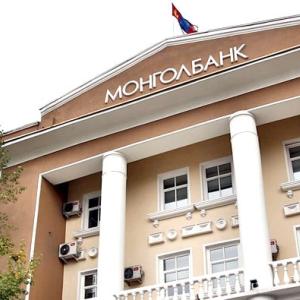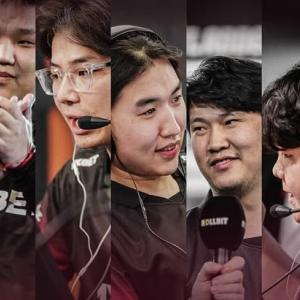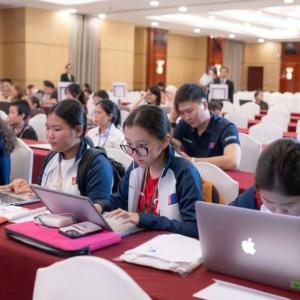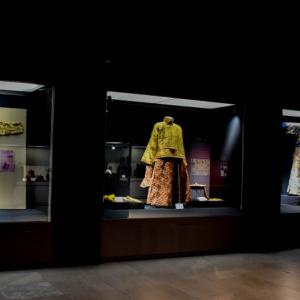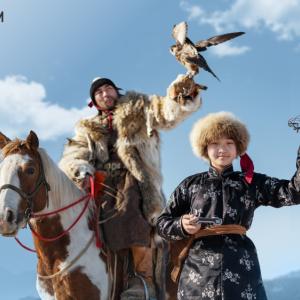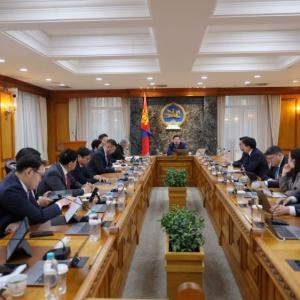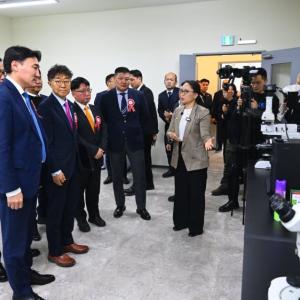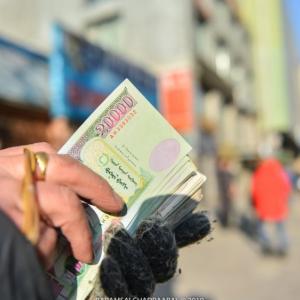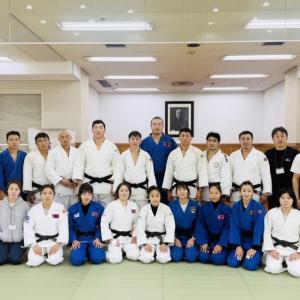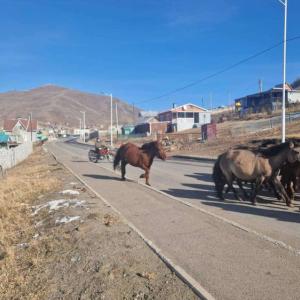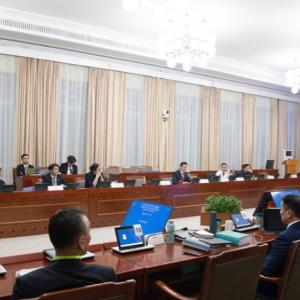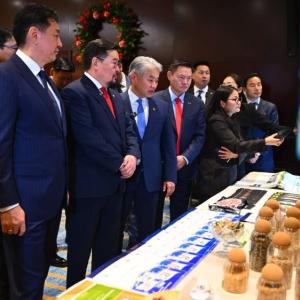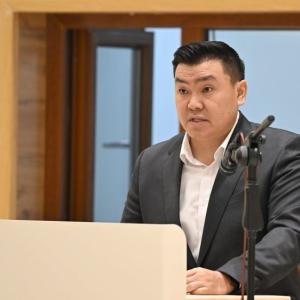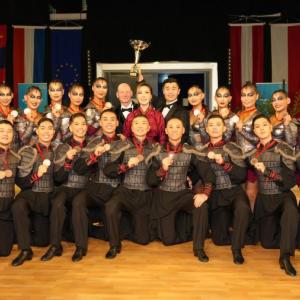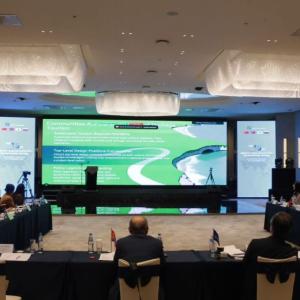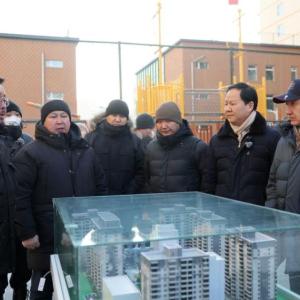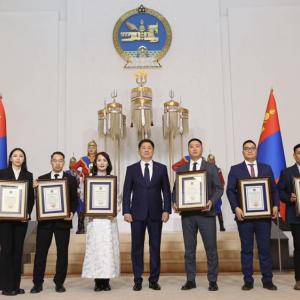Mongolia seizes diplomatic moment
Politics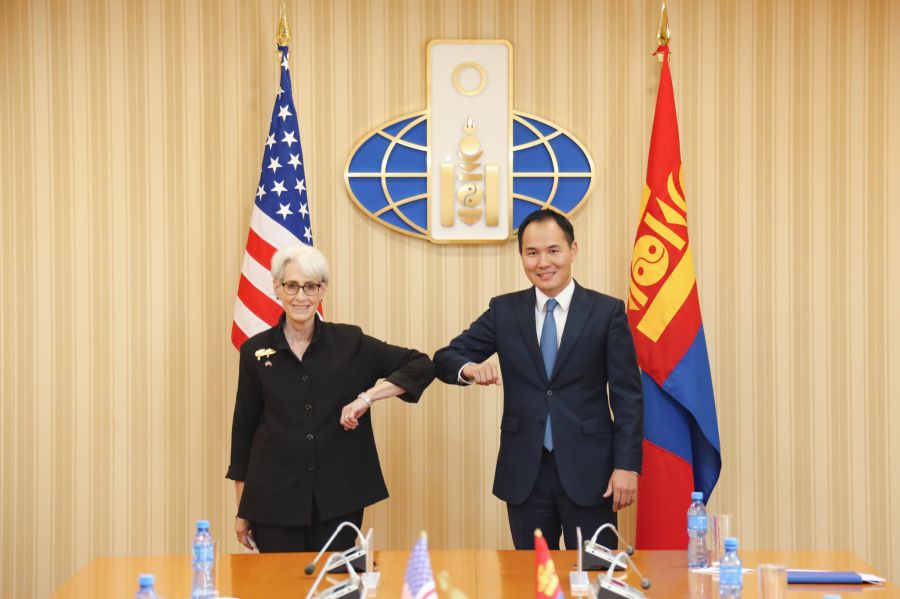
In the
space of just five days, Mongolian officials have held high-level talks with
China, Japan, South Korea, and the United States.
Mongolian diplomacy is having a moment. In the space of just five days, Mongolian officials have held high-level talks with China, Japan, South Korea, and the United States. Mongolia is one of many regional countries that is carefully avoiding choosing sides in the China-U.S. tug-of-war, while seeking to maximize its gains from all sides.
The current round of diplomacy kicked off with a visit from U.S. Deputy Secretary of State Wendy Sherman, who was in Ulaanbaatar from July 23 to 25. According to the U.S. State Department, Sherman “highlighted the importance of the U.S.-Mongolia Strategic Partnership and discussed ways to strengthen Mongolia’s democratic institutions, enhance its sovereignty, and diversify its economy.” She demonstrated the U.S. emphasis on human rights through a visit to a Mongolia’s LGBT Center, and visited Choijin Lama Temple Museum to learn “about the preservation of Mongolian culture, from religious sites to traditional Mongolian script.” The latter served as a subtle dig at China, which stands accused of eroding Mongolian culture and language across the border in Inner Mongolia, but overall Mongolia was careful to avoid embracing U.S. catchphrases that have earned China’s ire.
That doesn’t mean Ulaanbaatar was shy about embracing its
partnership with Washington. According to the read-out from Mongolia’s
Ministry of Foreign Affairs: “The visit of a high-level delegation from the
United States – Mongolia’s ‘third neighbor’ and strategic partner – is
significant in consolidating Mongolia-U.S. strategic partnership, and
strengthening the friendly relations between our two countries.” However, it’s
clear that Mongolia’s long-term priorities for the relationship are economic,
rather than strategic. Mongolia’s main takeaway was that “the two sides
expressed commitment to increase trade and economic cooperation.”
Even while Sherman was in Ulaanbaatar, Mongolia’s Prime Minister Oyun-Erdene Luvsannamsrai was in Japan from July 21 to 25 for a working visit tied to his attendance at the Opening Ceremony of the Tokyo Olympics. Oyun-Erdene was one of just a handful of foreign leaders to attend the pared-down festivities.

During the meeting with Japan’s Prime Minister Suga
Yoshihide, “Oyun-Erdene confirmed Mongolia’s willingness to develop the
strategic partnership and cooperation with Japan, a third neighbor of Mongolia,
in every possible area”.
Here again, Mongolia kept the focus on economic issues and pandemic management, as shown by the list of figures Oyun-Erdene met with, including Nishimura Yasutoshi, Japan’s minister in charge of economic revitalization and the Trans-Pacific Partnership, and Wakita Takaji, director of the Japanese National Institute of Infectious Diseases. During the visit, Japan and Mongolia “agreed on the necessity to elevate the economic, trade and investment cooperation to the next level” and discussed specific economic cooperation projects, including Mongolia’s new International Ulaanbaatar Airport, a highway project around Ulaanbaatar, the Bogdkhan railway project, and others.
It was Japan, not Mongolia that drew attention to more strategic issues after the meeting. According to Japan’s Kyodo News, “In Suga’s meeting with Oyun-Erdene, the two agreed that Japan and Mongolia will cooperate in realizing a free and open Indo-Pacific as well as continue to work toward the immediate resolution of North Korea’s abductions of Japanese nationals in the 1970s and 1980s.”
After leaving Japan, Oyen-Erdene headed to South Korea, where he met with Prime Minister Kim Boo-kyum, the head of South Korea’s Export-Import Bank, and “representatives of infrastructure investment companies.” However, he and Kim also spoke of deepening cooperation “in peace and security in Northeast Asia,” a nod to Mongolia’s envisioned role for itself as a mediator on the North Korea issue.

Meanwhile, Mongolian Foreign Minister Battsetseg Batmunkh traveled to Tianjin, China on July 27 – the same city that had hosted Sherman for talks a few days earlier. Battsetseg held meetings with her Chinese counterpart, Wang Yi, who told her that “China has always put its relations with Mongolia in an important position in its neighborhood diplomacy and hailed the top priority given by Mongolia to the development of relations with China in its foreign policy.”
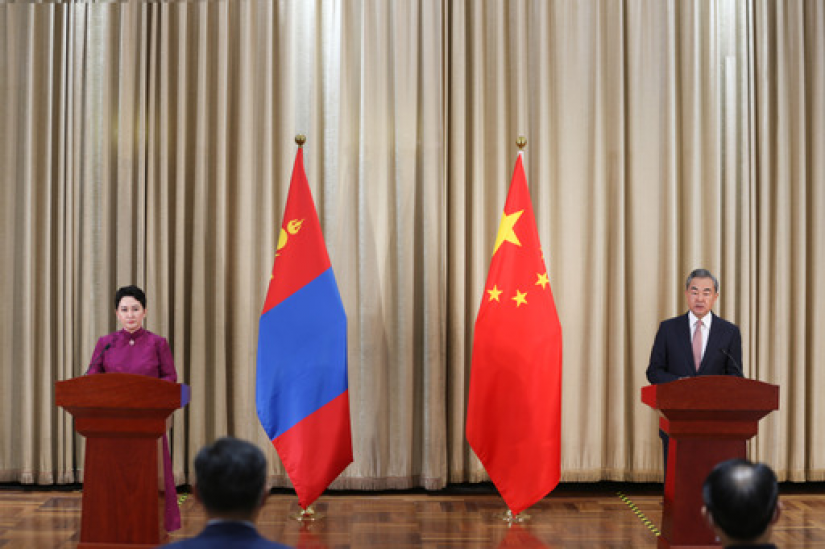
“China will help Mongolia accelerate development to the
best of its ability, and stands ready to strengthen cooperation with Mongolia
in the fields of mining, energy, finance, agriculture, husbandry, and
infrastructure construction,” Wang pledged. The two sides set a goal to
increase bilateral trade volumes to $10 billion and “give priority” to starting
“landmark projects” for the Belt and Road Initiative in Mongolia. Battsetseg
and Wang also agreed to “accelerate the alignment
of the Belt and Road Initiative with Mongolia’s Steppe Road Program.”
Battsetseg had attended China’s “Asia-Pacific High-Level Conference on Belt and Road Cooperation” back in June, where she also reiterated Mongolia’s readiness to cooperate with the BRI.
Once again, it was not Mongolia that highlighted the strategic side of the exchange. China’s read-out emphasized that both countries “will insist on mutual respect for each other’s independence, sovereignty and territorial integrity, respect for the development path chosen by each other, and respect for each other’s core interests and major concerns.” From a Chinese perspective, that is tantamount to a promise from Mongolia not to join U.S.-led chorus criticizing China for human rights violations or its actions in the South China Sea and Taiwan Strait.
Meanwhile, Chinese Defense Minister Wei Fenghe visited Mongolia on July 26, where he and Defense Minister Saikhanbayar Gursed “discussed cooperation between the two countries in defense, international and regional security, and other issues of common interest.” The two defense ministers “expressed their readiness to closely cooperate in continuing the cooperation through organization of visits, exchanges, and consultative meetings on defense and security of defense officials at all levels, and joint drills when the COVID-19 pandemic eases.”
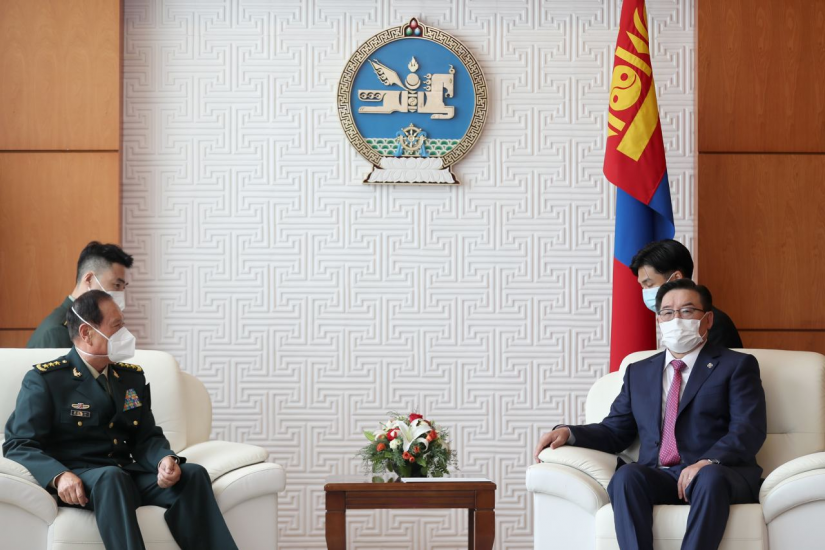
Wei’s visit to Ulaanbaatar is especially striking given the
focus on the economy, investment, and pandemic management in Mongolia’s
exchanges with the United States, Japan, and South Korea. China may be trying
to flex its muscles a bit while U.S. Defense Secretary Lloyd Austin is traveling
elsewhere in the region.
But don’t take that as evidence that Mongolia is somehow taking China’s side. Ulaanbaatar wants to grow its economy, which will necessarily hinge on taking advantage of its proximity to China (and the BRI). However, Mongolia is also wary of becoming overly reliant on its larger neighbor, and wants to safeguard its democracy and sovereignty. Its active outreach to “third neighbors” like the United States, Japan, and South Korea is evidence that Mongolia does not want to put all its eggs in the China basket.
From the Mongolian perspective, the goal is to make the most of its multifaceted foreign policy, just as it did during the height of the pandemic in its savvy procurement of vaccines. With over 60 percent of its population fully vaccinated, the country is a positive outlier for the developing world, and that’s largely thanks to its ability to entice partners from all sides to help provide shots. Mongolia has purchased vaccines from its neighbors, China and Russia, but also received donations of the Western vaccines made by AstraZeneca and Pfizer and additional funding support from the U.S. for good measure. It’s notable that Mongolian officials were able to thank the U.S., Japan, South Korea, and China for their assistance in fighting the COVID-19 pandemic.
Article by Shannon Tiezzi, TheDiplomat.com
 Ulaanbaatar
Ulaanbaatar







